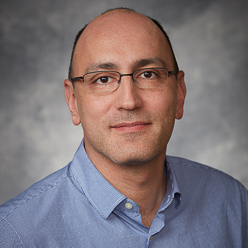|
4th International Workshop on Traffic Measurements for Cybersecurity
(WTMC 2019) co-located with 40th IEEE Symposium on Security and Privacy
|
|
San Francisco, California Thursday, May 23, 2019
Overview
Current communication networks are increasingly becoming pervasive, complex, and ever-evolving due to factors like enormous growth in the number of network users, continuous appearance of network applications, increasing amount of data transferred, and diversity of user behaviors. Understanding and measuring traffic in such networks is a difficult yet vital task for network management but recently also for cybersecurity purposes.
Network traffic measuring and monitoring can, for example, enable the analysis of the spreading of malicious software and its capabilities or can help to understand the nature of various network threats including those that exploit users’ behavior and other user’s sensitive information. On the other hand network traffic investigation can also help to assess the effectiveness of the existing countermeasures or contribute to building new, better ones. Recently, traffic measurements have been utilized in the area of economics of cybersecurity e.g. to assess ISP “badness” or to estimate the revenue of cyber criminals.
The workshop will be accessible to both non-experts interested in learning about this area and experts interesting in hearing about new research and approaches. Topics of interest include, but are not limited to:
SUBMISSIONS AND REGISTRATION
Papers will be accepted based on peer review (3-4 per paper) and should contain original, high quality work. All papers must be written in English.
IMPORTANT DATES
January 25, 2019 (AoE, UTC -12, EXTENDED): Regular Paper Submission
WORKSHOP REGISTRATION
Registration is now open (early registration by April 19, 2019, 11:59pm PDT)!
VENUE
The 4th WTMC workshop will be held at the Hyatt Regency, San Francisco, California.
PROGRAM
KEYNOTES
Protecting Industrial Control Systems requires solutions that not disturb existing operations, which is essential for large-scale systems and, especially for legacy systems. In talk we discuss our efforts for collecting SCADA network data, the challenges in getting access to these networks, and the variety of systems and industrial protocols. We then discuss our efforts in profiling the behavior of SCADA systems at different layers of packet inspection. By combining information extraction through network analysis, and semantics-aware network-based monitoring we build and maintain models of different perspectives of the system to help security analysts and operators better understand their systems and identify threats. Short BioAlvaro A. Cardenas is an Associate Professor at the University of California Santa Cruz. He holds M.S. and Ph.D. degrees from the University of Maryland, College Park. Before joining UC Santa Cruz he was a Eugene McDermott Associate Professor at the University of Texas at Dallas. His research interests focus on cyber-physical systems and IoT security and privacy. He is the recipient of the NSF CAREER award, the 2018 faculty excellence in research award from the Erik Johnson School of Engineering and Computer Science, and best paper awards from the IEEE Smart Grid Communications Conference and the U.S. Army Research Conference.  Roya Ensafi, University of Michigan, USA
Roya Ensafi, University of Michigan, USATitle: Making Sense of Censorship Abstract Interference with users’ online activities is on the rise, through behaviors that range from censorship and surveillance to content injection, traffic throttling, and violations of net neutrality. Reliably investigating interference requires new frameworks for measuring and interpreting network behavior. Understanding these complex phenomena requires longitudinal studies, observation from multiple vantage points, the ability to reverse engineer network traffic, and even application-specific techniques. In this talk, I will describe my efforts to design and build scalable, statistically robust measurement systems that use novel side channels to remotely infer network- and application-layer content filtering at global (Internet-wide) scale. My lab has deployed these systems in Censored Planet, a service that continuously monitors global Internet censorship and publishes semiweekly datasets about the availability of thousands of sensitive websites across more than 180 countries. Short BioRoya Ensafi is a Research Assistant Professor in Computer Science and Engineering at the University of Michigan, where her research focuses on computer networking, security, and privacy. She designs scalable techniques and systems to protect users’ Internet connections from disruption and surveillance. Roya is best known for her work in the area of Internet censorship, where she pioneered the use of side-channels to remotely measure adversarial manipulation of Internet traffic, including attempts to censor or tamper with users’ online activities. Her work on studying how the Great Firewall of China discovers hidden circumvention servers received an IRTF Applied Networking Research Prize (ANRP) in 2016. She has received the NSF CISE Research Initiation Initiative award and Google Faculty Research Award. Prior to joining Michigan, she was a postdoc at Princeton University’s Center for Information Technology Policy (CITP).
ORGANIZING COMMITTEE
Maciej Korczyński, Grenoble Institute of Technology, France Wojciech Mazurczyk, Warsaw University of Technology, Poland Pedro Casas, AIT, Austria
STEERING COMMITTEE
kc Claffy, CAIDA, USAAiko Pras, University of Twente, Netherlands Kensuke Fukuda, National Institute of Informatics, Japan
PROGRAM COMMITTEE
Hadi Asghari, Delft University of Technology, Netherlands Elias Bou-Harb, National Cyber Forensics and Traning Alliance and FAU, USA Giovane C. M. Moura, SIDN Labs, Netherlands Luca Caviglione, CNR - ISSIA, Italy Eric Chan-Tin, Loyola University Chicago, USA Richard Clayton, University of Cambridge, UK Amogh Dhamdhere, CAIDA/UCSD, USA Simone Ferlin, Ericsson Research, Sweden Romain Fontugne, Internet Initiative Japan (IIJ), Japan Paweł Foremski, Farsight Security and Polish Academy of Sciences, Poland Oliver Gasser, Technical University of Munich, Germany Mehmet Gunes, University of Nevada, USA Carlos H. Gañán, Delft University of Technology, Netherlands Amir Houmansadr, The University of Texas at Austin, USA Artur Janicki, Warsaw University of Technology, Poland Mobin Javed, ICSI, USA/LUMS, Pakistan Christian Keil, DFN-CERT, Germany Jörg Keller, Fern Universität in Hagen, Germany Igor Kotenko, SPIIRAS, Russia Christian Kraetzer, Otto-von-Guericke University Magdeburg, Germany Jean-Francois Lalande, CentraleSupélec, France Matthew Luckie, University of Waikato, New Zealand Jelena Mirkovic, USC Information Sciences Institute, USA Vinnie Monaco, Naval Postgraduate School, USA Tyler Moore, University of Tulsa, USA Philippe Owezarski, LAAS-CNRS, France Franck Rousseau, Grenoble Institute of Technology, France Ramin Sadre, KU Louvain, Belgium Quirin Scheitle, Technical University of Munich, Germany Anna Sperotto, University of Twente, Netherlands Stephen Strowes, RIPE NCC, Netherlands Ewa Syta, Yale University, USA Hu Tian, National Huaqiao University, China Guillaume Urvoy-Keller, Université de Nice Sophia-Antipolis, France Jeroen van der Ham, National Cyber Security Center, Netherlands Tom van Goethem, KU Leuven, Belgium Roland van Rijswijk-Deij, University of Twente and NLnet Labs, Netherlands Steffen Wendzel, Worms University of Applied Sciences and Fraunhofer FKIE, Germany Katsunari Yoshioka, Yokohama National University, Japan Nur Zincir-Heywood, Dalhousie University, Canada
PREVIOUS WORKSHOPS
WTMC 2018 at ACM SIGCOMM Budapest, HungaryWTMC 2017 at IEEE S&P, San Jose, California, USA WTMC 2016 at ACM ASIACCS, Xi'an, China
CONTACTS
Contact WTMC 2019 chairs using this email address: wtmc2019@easychair.org. |



